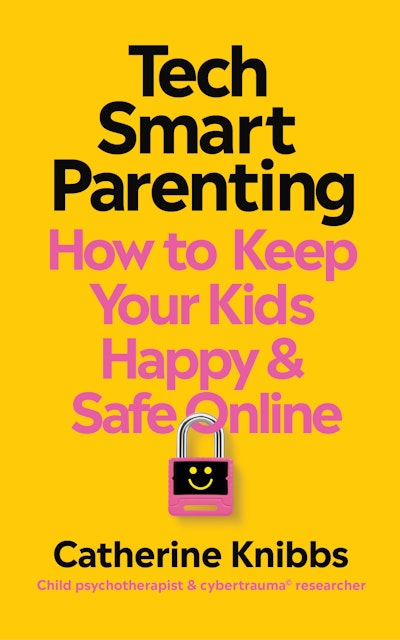- Published: 28 October 2025
- ISBN: 9781785045707
- Imprint: Vermilion
- Format: Trade Paperback
- Pages: 368
- RRP: $36.99
Tech-Smart Parenting
How to keep your kids happy and safe online
- Published: 28 October 2025
- ISBN: 9781785045707
- Imprint: Vermilion
- Format: Trade Paperback
- Pages: 368
- RRP: $36.99
This is an essential book for any parent who wants to feel more informed and confident in navigating the new digital childhood. Grounded in evidence, relatable stories and practical tools, Tech-Smart Parenting offers a realistic yet reassuring approach to screens in what can often feel like an overwhelming environment that makes parents feel like they're failing. Knibbs cuts through the panic in the screen time debate with wisdom and warmth - a must-read for the tech-anxious generation.
Pete Etchells, author of Unlocked: The Real Science of Screen Time
Parents are rightfully confused about how their children should be interacting with social media, gaming and devices. Catherine Knibbs provides a much-needed and refreshingly balanced viewpoint in offering practical advice for technology use. Tech-Smart Parenting moves away from salacious fear-mongering about a lost generation, and instead offers an essential, clear-eyed view about the promises and perils of youth tech use and how parents can feel empowered and informed. Tech-Smart Parenting should be a go-to book for those looking for a pragmatic approach to parenting in the digital age.
David Ryan Polgar, Founder and President of All Tech is Human
An essential, expert (and overdue) guide for any parent worried about how tech is affecting their children, but wanting to rely on science instead of paranoia.
Dean Burnett, neuroscientist and author


